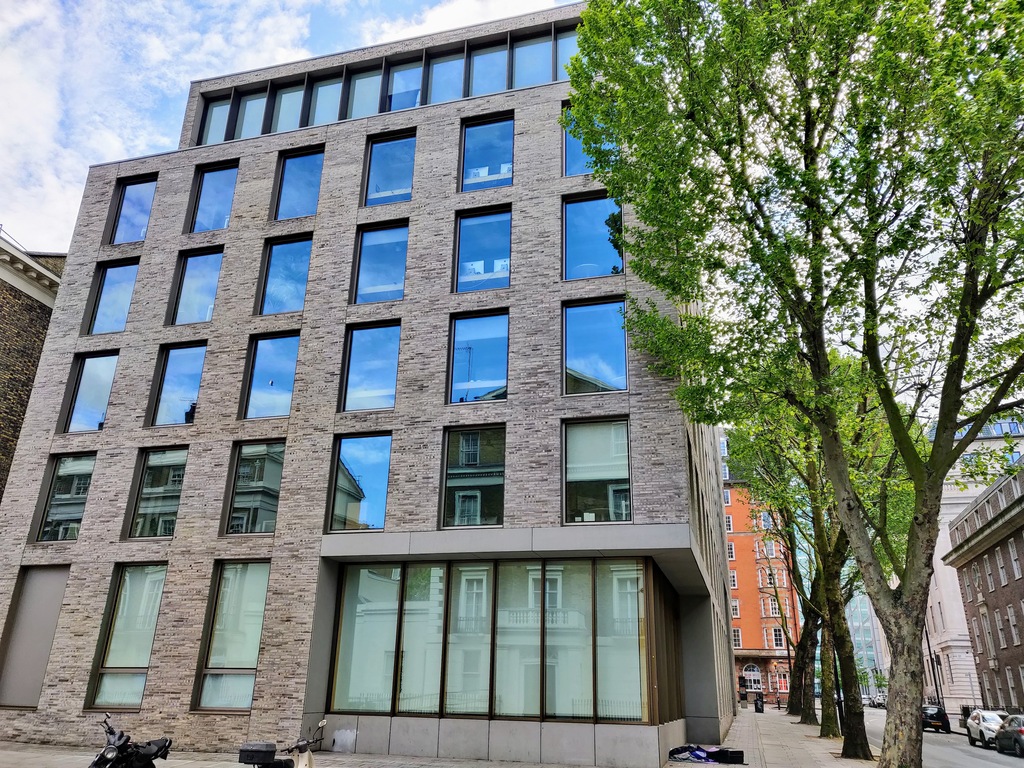
Whatever happened to the Bartlett School of Architecture investigation?
One of the strangest stories in the history of the Bartlett School of Architecture, now in its third inconclusive year, continues to be obscured by a refusal on the part of the university authorities to say anything about it, writes Paul Finch. Without fanfare, apology or even a simple announcement from the school, the faculty, or its parent body, University College London, several Bartlett staff who had been in a form of academic suspended animation for two years or more, have been returned to work without any acknowledgement of the treatment they were put through.
The absence of any form of publicity was in marked contrast to the blast of self-flagellating announcements that UCL generated for itself back in 2022, following complaints by a former Bartlett graduate from over two decades ago (who did not become an architect) about her alleged treatment by the school. An alumni appeal for related complaints generated enough to alarm the university authorities.
An ‘investigation’ was launched which from the outset looked like a classic witch-hunt: assume allegations are true; and publish them without the opportunity of the accused defending themselves or just having their say.
As usual in a witch-hunt, the people making the accusations (both staff and students, past and present) do so anonymously and were indeed encouraged in this by UCL, which praised their ‘bravery’ in coming forward.
The consultants who conducted the investigation, Howlett Brown, were not an obvious choice for the task. The young consultancy had no track record in conducting investigations in the academic world, and their appointment is the subject of a series of sceptical questions currently circulating among Bartlett staff. What were their qualifications? What process resulted in their appointment? There are plans in UCL for a review of its use of environmental investigations, but no announcements on when this will start or how it will be run have yet been made.
In the event, Howlett Brown’s report contained a ‘trigger warning’ from the outset – that it would contain other ‘trigger warnings’! The report by definition favoured versions of events by people who knew they could never be questioned in public about the veracity of their statements. This suited the book of some staff at the Bartlett who, for example, disliked the ‘crit’ system which over many years had made the school one of the top-ranked in the world.
The specific findings of the Howlett Brown investigation cited ‘numerous reports of unacceptable behaviour at the BSA’ – including allegations of bullying, harassment, racism and sexual misconduct – and highlighted a ‘toxic’ culture spanning ‘decades’. (Conveniently, the consultants offer training courses in how to avoid this sort of thing.)
UCL leaped into action and suspended several school of architecture staff in the summer of 2022 – it has never revealed how many, let alone their names, even though for people at the school it was common knowledge. It appears that up to ten staff were involved. Whilst further investigations were underway, all staff were banned for communicating with suspended staff for a period which lasted two and a half years. As one commented: ‘It was like being in Covid lockdown’. They were forbidden to communicate with each other or other members of staff during this period, and without any form of concluding public statement by UCL on the affair, uncertainty persists on elementary matters of freedom.
The Bartlett is not the only part of UCL to have been subject to inquiries about conduct, or ‘environmental investigations’ as they are technically described. The Slade School of Art was also probed in recent years, but there was no equivalent fall-out as there was for the Bartlett School of Architecture.
The only decent thing UCL undertook during this sorry history was to institute independent internal tribunals. Each of the suspended Bartlett academics, at least those who declined a financial offer to leave or take early retirement, had the opportunity to appear before the tribunal and subject themselves to cross-examination about their behaviour. These tribunals could take days. Not surprisingly, all ‘defendants’, not only those subject to tribunals, hired lawyers and barristers to guide them, incurring significant personal costs.
What were the conclusions of these internal tribunals, and where does this leave the Howlett Brown report? Given that staff are back, and none have been dismissed, what is one supposed to make of the report’s anonymous ‘evidence’?
This is a shocking story and one which UCL has so far succeeded in avoiding publicly, by refusing to answer any questions about it. This included an unsuccessful attempt by the Architects’ Journal to use a freedom of information request in respect of the numbers of people suspended (or put in ‘interim measures’ as the university likes to say), and the numbers who have returned.
In addition to those questions, UCL should also tell us
- What were the terms of reference in respect of the Howlett Brown appointment?
- What specific evidence from the Howlett Brown report stood up through subsequent investigations and tribunals? And what specific claims have not been upheld?
- What was the cost of the Howlett Brown Investigation, and all subsequent related investigations, tribunals, settlements, legal fees and salary costs of staff while they were in ‘interim measures’?
- Does this saga explain the shortfall in the School of Architecture’s budgets for the next two years?
- Given that UCL apologised in public before any tribunals were conducted, thereby implying staff were guilty in advance, were those staff presented with any evidence against them before they were ‘suspended’ in 2022?
- Have current staff and students been consulted on their current experience of the school, and if so, what is the feedback?
While the stench of this saga lingers, some of the people involved are no longer around to be answerable. Vice-Provost Professor Sasha Roseneil, who commissioned the Howlett Brown investigation, left UCL for Sussex before the report was published. Her successor, Professor Anthony Smith, managed subsequent internal investigations; he retired last year.
The Bartlett dean at the time, Christoph Lindner, was responsible for a classic piece of woke-speak when the report was published: ‘It’s time for us to have some difficult conversations about how we disrupt existing structures of privilege and power, making space and opportunities for those who have previously been marginalised.’ He had joined the Bartlett after leaving the University of Oregon in 2019, where he was being sued for alleged age discrimination.
Fiona Ryland, who was vice-principal in charge of operations at UCL, was involved in a curious appointment involving Lindner’s wife, Rebecca. Three months after joining the Bartlett, she was appointed as a principal research fellow in UCL’s doctoral school with a salary of up to £75,000. An expert in diversity policies in higher education (surprise!), she was later seconded to a senior role in the university’s professional development programme.
A whistleblower, The Times reported, complained that there was an ‘unethical practice of appointment through nepotism’, with public funds being used without following due process, according to the Information Rights Tribunal. The university ordered an investigation by the law firm Pinsent Masons.
Ryland refused to release the lawyers’ report (does this sound familiar?), but on her last day at the university, reassured the whistleblower in a summary that there were no findings of impropriety.
Three judges at the Information Rights Tribunal criticised Ryland’s summary as ‘selective’. They found that ‘findings that were favourable to the university were presented in full, while unfavourable findings were omitted or re-phrased’.
The tribunal said that her summary ‘raised further concerns about a lack of transparency and accountability at the university’.
Ryland left UCL to become chief people officer for Whitehall’s half-million civil servants.
In 2023, only four years into his appointment as Bartlett Dean, (his previous two successors were in post for at least 10 years each), Christoph Lindner resigned from the Bartlett and despite being a middle-aged white male, is now ‘President and Vice-Chancellor’ at the Royal College of Art (obviously a stranger to privilege).
Rebecca Lindner left to go to King’s College.
UCL’s provost Dr Michael Spence,is an ordained cleric in the Anglican Church, which is slightly odd given UCL’s proud secular history (it is not allowed to teach theology). He has said nothing in public about the disastrous saga outlined here since his apology to alleged victims in 2022, before investigations into suspended staff had commenced. He is still in place, having had his tenure renewed in December 2024, extending it to 2031. (He is in the process of trying to change UCL Statutes protecting academic freedom, which recently led to a mass rejection by UCL’s academic board.)
Spence’s thesis subject at university was ‘Freedom and determinism’. AT UCL he launched a programme called ‘Disagreeing Well’. Hollow laughter from staff exonerated of major wrong-doing, but still blighted by a cloud which can only be removed by UCL making a public admission about the findings of its independent tribunals. Why doesn’t the provost take what would surely be a morally appropriate decision?
Finally, why is UCL, part of the Russell Group of top universities, bleating about being short of money when it has, in effect, wasted vast sums of tuition fee income on a deeply questionable report, and even more on a ruthless hunt for scapegoats to serve as a sacrifice to its own brand, while wrecking that of one of its stellar departments?
Paul Finch is an Honorary Fellow of UCL.
Founder Partner






